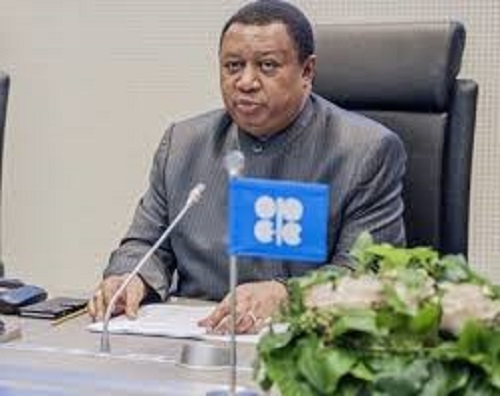Dr. Sanusi Barkindo, OPEC Secretary General
Speaking at the Organisation of Petroleum Exporting Countries (OPEC), first Ministerial Roundable on Energy, Climate and Sustainable Development, Dr. Sanusi Barkindo, advocated that renewable energy sources and fossil fuels should coexist.
Barkindo decried the widening dichotomy between opposition to fossil fuels and renewable energy sources that both are indispensable. He stated that the public discourse around the issue often seem to be reduced to the question of who is for or against hydrocarbons.
Describing it as the ultimate false dichotomy, the OPEC helmsman stated that this line of thought erroneously limits what options are available, stressing that the solutions require more comprehensiveness.
“No-one should be left behind. All voices need to be heard and listened to. We all share this planet. We need multilateralism at the centre of our energy, climate and sustainable development future,” he insisted.
He added that OPEC has continuously been promoting both sustainable development and efforts to combat climate change, with a focus on the need to utilise all solutions to reduce greenhouse emissions and adapt to their impact, and at the same time ensure energy access for all.
“I have witnessed energy poverty first-hand in my home continent of Africa, where more than 600 million people have little or no access to electricity and 900 million lack safe and clean cooking fuels.
“Global leaders need to be reminded that for billions, the day does not start by switching on a light, opening a refrigerator or turning the ignition on a car. Access to affordable and reliable modern energy is a must for everyone.
“There are some who believe the oil and gas industries should not be part of the energy future, that they should be consigned to the past, and that the future is one that can be dominated by renewables and electric vehicles. We need to counter this evolving narrative,” he explained.
He argued that what the science and statistics of the energy sector is saying is that the world needs to reduce emissions and use energy more efficiently through innovation in developing cleaner and more efficient technological solutions to help reduce emissions.
He stressed that for instance, Carbon Capture Utilisation and Storage (CCUS) as well as the promotion of the Circular Carbon Economy (CCE) could improve overall environmental performance, rather than the call to jettison fossil fuels all together.
“In order not to render countries already struggling even more besieged, it is necessary to carefully consider the adverse socio-economic impacts on these countries due to mitigation activities, in order to identify remediation measures and share best practices.
“In this regard, financing is critical to reach any climate targets set in developing countries’ nationally determined contributions (NDCs). There has been a lot of talk about finance issues from developed countries, but so far, a disappointing amount of pledges have been realised,” he added.
Barkindo called on proponents of wholesale energy transition to note that COVID-19 has made circumstances more difficult for oil-producing developing countries, which already face devastating losses that could accompany mitigation and adaptation action.
“Oil and gas development and the environment have often been seen as the antithesis of one another, and yet as we all know this is not the case. The two can go hand-in-hand,” he argued.


Comment here